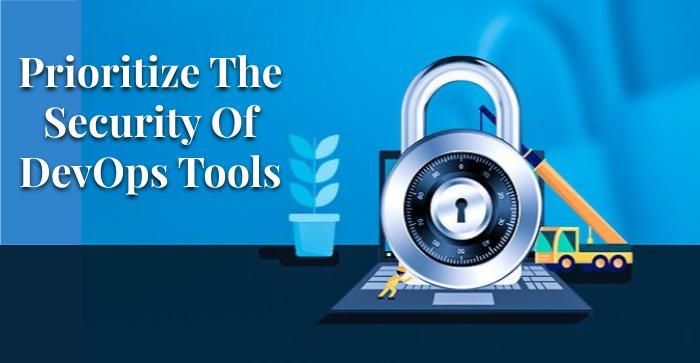
DevOps security is a term that refers to the practice of providing security to all the tools and processes that form part of the DevOps environment. This can be done by effectively implementing policies, procedures, technology and strategies throughout the DevOps lifecycle. Also known as DevSecOps, this practice has the main aim of increasing security levels via improved collaboration and sharing of responsibility. This needs to have a presence throughout the DevOps workflow.
The security teams at those companies that give a high level of priority towards providing security to the DevOps chain tools along with the privileged accounts. They also make it a point to protect the development and production environments by themselves.
There are many companies that offer DevOps services to those who require it since they have all the necessary expertise in all the DevOps related processes CI/CD, development, deployment, automation and feedback. The following tips need to be followed by these DevOps consulting companies for ensuring the maximum level of security of the various DevOps tools and processes:
Setting up and implementing policies for selecting and configuring tools
One of the most important steps towards DevOps security is to make a record of all the DevOps tools that the development teams in an organization make use of. This is due to the fact that many companies are most of the time, relying on open-source tools for the purpose of easing out the process of learning new things as well as ensuring faster release cycles. It is important to conduct a complete examination of all the tools and processes so that any security issues get quickly fixed and resolved. This can be done by having all teams collaborate for the selection and configuration of the best possible set of tools, after which enterprise security standards need to be set.
Code repositories should not reveal secrets
There are high chances of critical company data being stored in some of the code that may be illegally utilized by unauthorized third parties like hackers. For ensuring more security to such kind of critical company data, developers need to be made aware of risk-based policies for software repositories. The organization can also make use of on-premises repositories rather than cloud-based ones. Even if cloud-based repositories are used, they need to be privately configured. Automated scanning needs to be enabled for identifying any sort of secrets hidden in code.
Keep an eye on and protect infrastructure
It is very essential to have an eagle’s eye on all the infrastructure such as the servers and workstations. These infrastructural elements can be protected by using various techniques like vulnerability scanning, regular fixing, and security monitoring. Some other methods of identifying any suspicious activity on the infrastructure include monitoring the cloud for unusual usage of credentials or changes in the configuration. Moreover, it is essential to keep the VM and container images that are being used in production environments up-to-date as well as keep the system automated for security configuration along with appropriate controls.
Looking for the best DevOps consulting company? Check out our list to find the most suitable DevOps company for your business.
Reduce the access of users to certain DevOps tools
The access to DevOps tools should be given only to those users who have clearly defined roles and responsibilities. Also, a system should be created where there is dual authorization for functions that are extremely critical. Some DevOps tools such as Jenkins, which are automated, tend to perform a certain number of duties without facing any restriction right from building and testing to packaging. In such cases, tasks need to be separated for automation tools like these. For Jenkins, multiple nodes can be implemented, where each one is dedicated to one function of each given application (build or test or package) and every node will have its own identity along with a small number of automation privileges.
Provide full security to DevOps tools
The security team should take every possible step to block the attempts of attackers of spotting any vulnerability in the DevOps system. In order to achieve this, it is essential to address security requirements and potential vulnerabilities by way of properly securing the credentials that are used in the DevOps environment and cloud management tools with the help of an encrypted vault protected with multi-factor authentication (MFA).
Hence, any DevOps companies have to make sure that they follow the above-given tips for DevSecOps for the purpose of establishing a smoother software development cycle.

